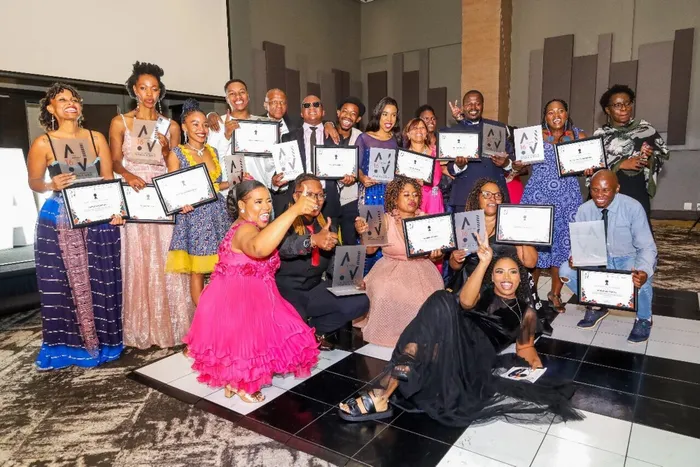Honouring activists in the war against gender-based violence and femicide

Some of the people in the front line in the fight against GBVF, who were honoured for the role they play in their communities. Picture: Supplied
Johannesburg- The Lady of Peace Community Foundation, in collaboration with UN Women’s South Africa Multi-Country Office, has initiated a programme to honour and celebrate actors and actions being taken to ensure that women and girls live violence-free lives.
In December last year, the foundation identified and gave awards to 16 community actors who are focused on ending violence against women and girls across communities in Gauteng.
Celeste Diale, the foundation’s concept developer, said the point of the award handover was to honour, recognise and acknowledge those on the front lines and doing the work in the fight against GBVF.
“Our biggest concern is that many South Africans out there are doing great work in contributing towards ending violence against women and children, and in most instances go unrecognised.
“They use their meagre personal resources to combat a societal issue. It is expected that this appreciation and acknowledgement will encourage other stakeholders to act against GBVF in their localities and discourage by-standerism in communities. Therefore, the various acts and actors can create a political force for change that can make an impact on a larger scale," she said.
It is no secret that GBVF is a second pandemic in South Africa. As shown in police data, between April 2020 and September 2022, 988 women were killed in domestic violence in South Africa. Having successful grassroots prevention campaigns located in communities is crucial.
Lebogang Motau, the founder and CEO of Free World Initiative (Atteridgeville region), is one of the 16 actors who received awards.
Motau said the motive for her to start this organisation was the fact that she was raped in 2019. She then made a promise to herself that she would ensure that no other woman would have to go through what she experienced.
She stated that her NPO focused on human rights, awareness campaigns, and victim counselling and support, among other things.
“I work towards making the country safe for women to never have to experience rape. But if they do, then they will have someone to walk the journey with them, from victim to survivor. The win came at a time when we were all feeling drained, when we saw the numbers of violent acts rising, and we sometimes felt like we were losing the battle. The win was a way of showing us that we were making a difference,” she said.
Jabulile Maseko, the founder and CEO of You Are Not Alone Women and Family Centre (Tembisa region), is another actor whose work was acknowledged by the foundation. She shared how winning the award had encouraged her to keep on doing the good work she had been engaged in.
“It feels good to know that I am making a change in our community. I am even more determined to work harder than before to win this war,” she said.
Maseko stressed that the government alone could not win the war against GBVF. However, in collaboration with other civil society organisations and NGOs, a lot could be done.
''President Cyril Ramaphosa needs to see that NGOs dealing with GBVF are getting funded and are also accountable to those who receive the funding. We need action, not just talk,” she said.
According to Shalen Gajadhar, the spokesperson for the Department of Women, Youth and Persons with Disabilities, never before has the government invested so much in its response to GBVF.
“What we are seeing through the GBVF collective is government and civil society coming together to respond to GBVF in new and innovative ways that are required.
“What should be prioritised is raising awareness to ensure that GBVF is (seen as) a societal problem, and not just one for those affected by it. It will take all of society to prevent GBVF, rather than responding to cases of GBVF after they happen.”